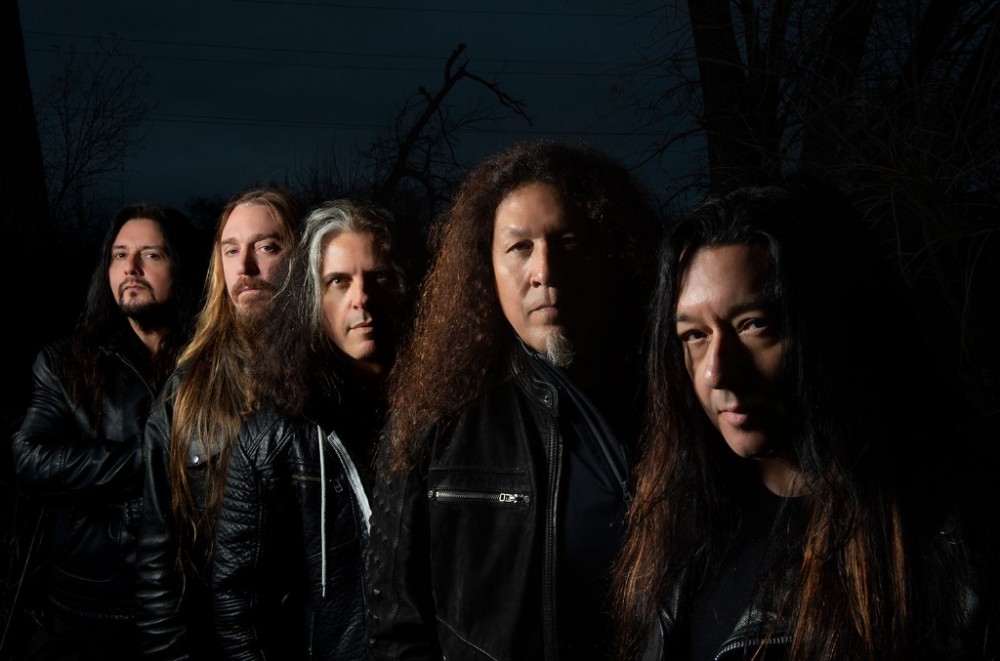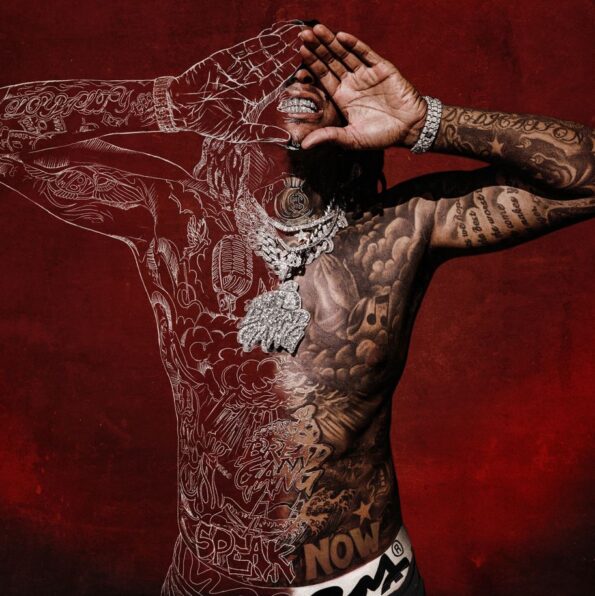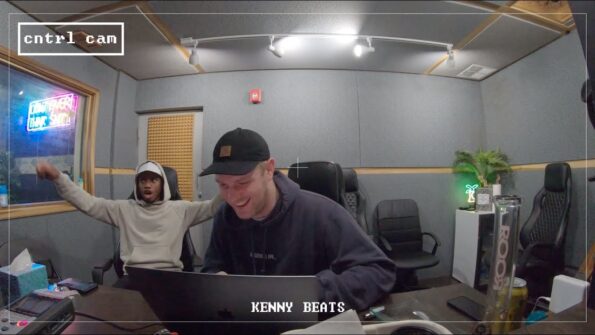The thrash band’s frontman discusses his Pomo roots and the role medicine men played in his cancer battle.
Testament is the rare case of a metal band retaining its hard edge even after finding peace. When frontman Chuck Billy developed a cancerous tumor in his chest in 2001, all signs pointed to his career being over.
Fast forward four years, and Billy was, understandably, in a very upbeat place after a successful recovery that was capped off by a celebrated 2005 reunion of Testament’s classic lineup featuring Billy, guitarist Eric Peterson, and the return of lead guitarist Alex Skolnick, bassist Greg Christian, and drummer Louie Clemente.
Though the band has been going strong ever since, it has taken Billy until now to address his recovery in Testament’s music. With Titans of Creation (due April 3 on Nuclear Blast), he felt like the time was right.
But it’s not just Billy’s health that has beaten the odds: With Titans of Creation, the Bay Area-thrash institution sounds as energized as it ever did during the genre’s ’80s heyday. And though the classic-era lineup didn’t remain completely intact, the material hums with a group chemistry that rivals all-time metal classics such as 1987’s The Legacy and 1988’s The New Order.
In fact, Titans is the first Testament album in almost three decades to feature the same personnel as the album that preceded it, 2016’s Brotherhood of the Snake. The group will support Titans with a 30-date North American tour starting April 20 in Phoenix, with openers The Black Dahlia Murder, Municipal Waste and Meshiaak.
As always, the music is anchored by rhythm guitarist and main creative engine Peterson, while reunion holdover Skolnick once again puts his trademark stamp on the songs with his refined, complex leads. The lineup is rounded out by drummer Gene Hoglan and bassist Steve Di Giorgio, two legendary players themselves who both have done separate tours of duty in the band years ago.
“On this record, I let Eric lead the charge, where in the past I’ve always taken a stance and butted heads with Eric,” admits Billy. “Either I would say], ‘Oh, it’s not heavy enough’ or ‘I don’t like that riff — it’s too wimpy.’ There was always something I would bash him over. That’s how we used to form songs.”
But this time, he didn’t challenge Peterson, and kept his opinions to himself. “I just wrote my melodies and lyrics to what he gave me. It challenged me to not be the stubborn guy. If there was a chord that I thought was weird for Testament, I worked with it,” the singer explains. “I don’t know why it ended up that way this time. Maybe it’s because Eric always makes the comment, ‘I’m going to send you music, and you’re not going to like it.’ ”
Billy thinks it made for a better record because it gave Peterson room “for a lot of variety in riffs, so the songs each have their own feel and identity.”
When Peterson sends you riffs, how much has everyone else had a say at that point?
Just me and him work it out first. I go over to his house, and I’ll just get a microphone and he’ll play me the songs, and I just jump in. I just freestyle it, and we record it. That’s how it all starts. I let it play over and over and over in my car and, the next thing you know, my parts write themselves because I’ve heard the music so much.
Some of these new songs deal with subjects that would be right at home on classic Testament records — nuclear annihilation (“WWIII”), religious cults (“Children of the Next Level”), supernatural hauntings (“Dream Deceiver”). But then you also talk about things that feel more contemporary, like “Symptoms” and “The Healers.”
Sure. “Symptoms” deals with mental illness and depression, and “The Healers” came from my cancer experience. I went to see three Native healers — medicine men. I wanted to incorporate my experience with them and what they did for me.
Alex wrote the words to “Symptoms.” With all the things going on in the music industry, like with the death of Chris Cornell and things like that, I thought it was an appropriate subject. And that song is right up Alex’s alley as far as subject matter. He always touches a nerve like that and gets a little topical] in his lyrics.
In the old days, we would write on tour, so me, Eric and Alex would sit in the back lounge of the bus, play the songs on acoustic guitar and write the words together. For this one, Alex let me run with his musical ideas, but for “Symptoms,” he had an idea for the lyric and the melody. When Alex first sent his completed idea for the song, I wrote lyrics with original Testament/longtime Exodus vocalist] Steve Souza, but Alex didn’t like our version. Laughs]
I like Alex’s lyrical style because it’s different than Eric’s. He approaches the timing of the vocals differently. His two songs — “Symptoms” and “Code of Hammurabi” — definitely give the record a different feel.
Why have you taken this long to address your bout with cancer in the music?
One of the healers passed away last year, and the first healer I saw has dementia. He’s in a veterans hospital in New York. I went to see him a few years ago, and he didn’t remember me. And the last healer, Turtle, I haven’t seen him since. He moved from where he was doing his healing ceremonies. So I kind of felt like it was time for me to speak their names. They were a big, important part of my life at that point.
I didn’t want to write about it before because I remembered a story from my grandmother. We had an uncle that was ill with leukemia, and they had a healer come to the house. Just before he left, the healer said, “He’s going to be OK. Just don’t talk about it. Live your life.” I don’t know; something about that stuck with me. But not being able to see these three healers, I really want to pay homage to them.
You mention spirit guides in “The Healers,” too.
Yeah, the first healer told me that my spirit guide was the wind. I reference that in the song, reference things that they all taught me. Like, I mention how one of them, Lupan, showed me how to shrink my tumor. It was too big to operate on. He told me, “Pick a color that represents strength and energy and power.” So I envisioned this crystal blue energy, and he said, “OK, now focus on the tumor, on the size of it, and put that crystal blue energy into the tumor in your mind].”
When I hear the lyrics, it really does take me back to that day when I was out on the mountaintop and when I was in the sweat lodge. I was raised with all those stories, but our tribe and our family were Catholic. My mom was very religious, and I went to church every Sunday. I went to catechism all the way through high school. But over the years — especially after my cancer — I’ve become more spiritual than religious.
How much have you had to dig to become familiar with your Native heritage?
I didn’t really hit on it until I got sick. My father was born on the reservation, but he didn’t want his kids to grow up there. So that separated us a little bit from our culture], but I still felt alienated back in the white man’s world. I still felt different and like I was looked upon differently.
I did feel comfortable going back to the reservation and seeing family that still lived there. We would always go back to visit for summer, and I’d look around like, “Wow, they look like my brothers!” Laughs] We all look kind of alike. A lot of the Pomo Indians have the same shape and big-chested build. They’re big, tall people.
Our tribe’s known for basket weaving — my mother has baskets in the Smithsonian — but the sad thing is that we’ve lost a lot of our language and basket-weaving customs over the years. But it’s starting to come back. And being part of a separate Smithsonian exhibit with my grandmother was kind of cool.



